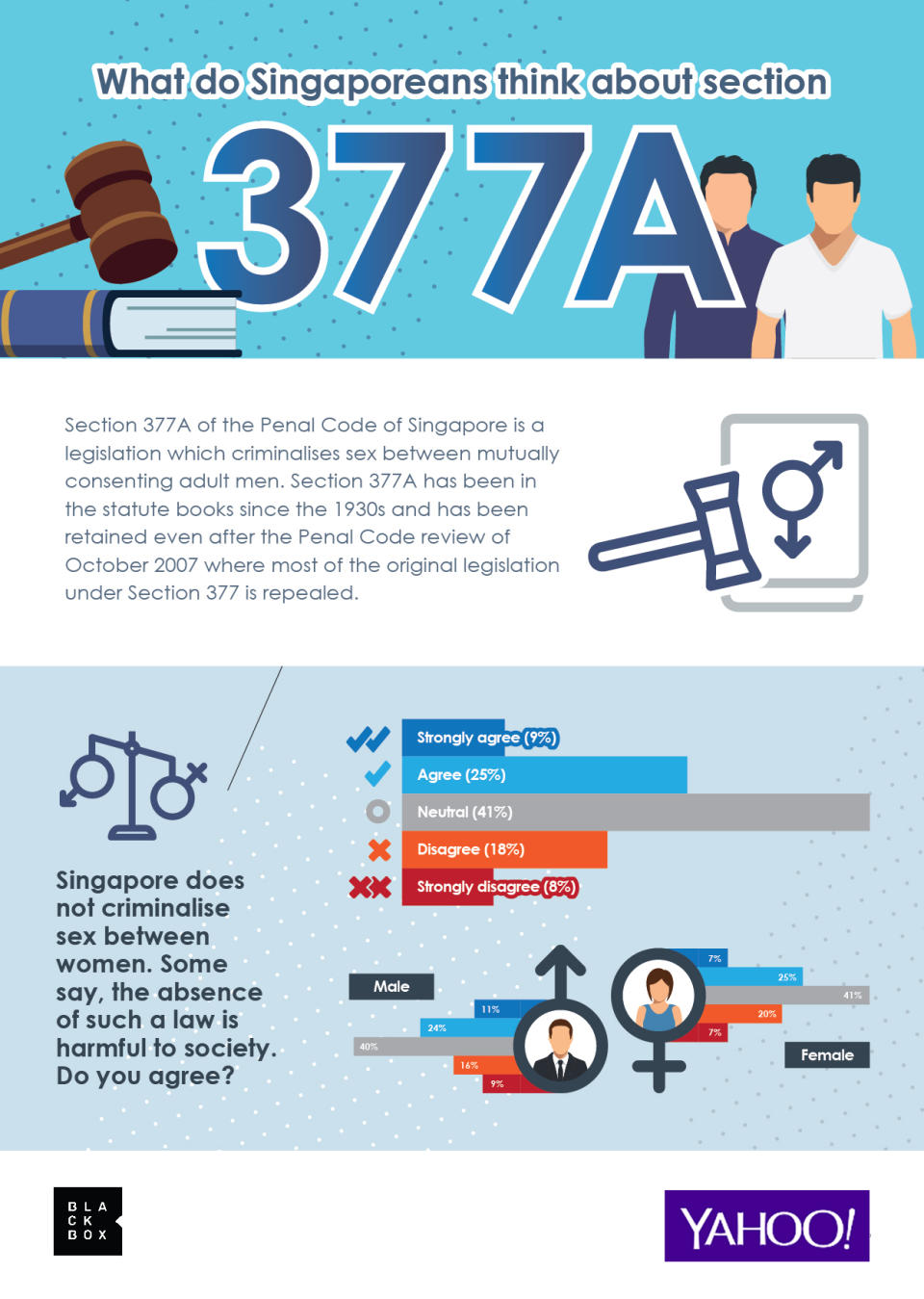33% of Singapore residents say no law criminalising sex between women harmful to society, 41% neutral: survey

This is the second of four stories based on the responses by Singapore residents to questions in a Blackbox Research survey related to Section 377A of the Penal Code.
Over three in 10 Singapore residents agreed that the absence of a law criminalising sex between women is harmful to society, according to a survey commissioned by Yahoo News Singapore.
Of the other respondents, about 26 per cent strongly disagreed or disagreed with the statement, while 41 per cent were neutral.
Among the respondents by gender, more males strongly agreed or agreed with the statement at 35 per cent, compared with 32 per cent of females. The proportions of males and females who were neutral on the statement were 40 and 41 per cent, respectively.
The proportions of males and females who strong disagreed or disagreed with the statement were 25 and 27 per cent, respectively.
The survey, conducted by Blackbox Research between 12 and 19 October, asked 1,000 Singaporeans and permanent residents on their views on Section 377A of the Penal Code.

Under Section 377A, sex between men is illegal in Singapore although it is rarely enforced, with offenders facing up to two years’ jail. The law does not apply to sex between women.
The proportions of respondents who strongly agreed or agreed with the statement were somewhat consistent across all age groups: 31 per cent (15-24 years old), 35 per cent (25-34 years old), 31 per cent (35-49 years old) and 35 per cent (50 years old and above).
Among those who strongly disagreed or disagreed with the statement, the proportions were 34 per cent (15-24 years old), 27 per cent (25-34 years old), 24 per cent (35-49 years old) and 25 per cent (50 years old and above).
The proportions who were neutral were 34 per cent (15-24 years old), 38 per cent (25-34 years old), 45 per cent (35-49 years old) and 41 per cent (50 years old and above).
The debate over 377A, introduced in Singapore in 1938, was reignited after the Supreme Court of India ruled on 6 September that consensual gay sex was not a crime in the country following a two-decade legal battle.
Section 377A was enacted when India and Singapore were still under British colonial rule.
The landmark ruling stirred heated discussions between LGBT activists in Singapore, who argue for a repeal of the law, and those who are against such a move.
Veteran Singapore diplomat Tommy Koh, who is Ambassador-at-Large, waded into the debate when he encouraged Singapore’s LGBT community to bring a class action to challenge the constitutionality of Section 377A in a Facebook post.
Petitions have since been started by activists on both sides of the divide, with religious groups weighing in, and a deejay filing a fresh legal challenge.
Read more about the Blackbox survey: Singapore residents split on whether 377A repeal would lead to breakdown of family unit: survey
Most Singapore residents agree religious views shouldn’t influence the law: survey
Related stories:
AG Lucien Wong rebuts views of Walter Woon and V K Rajah on Section 377A
Repeal 377A organisers urge supporters to reach out to their MPs


